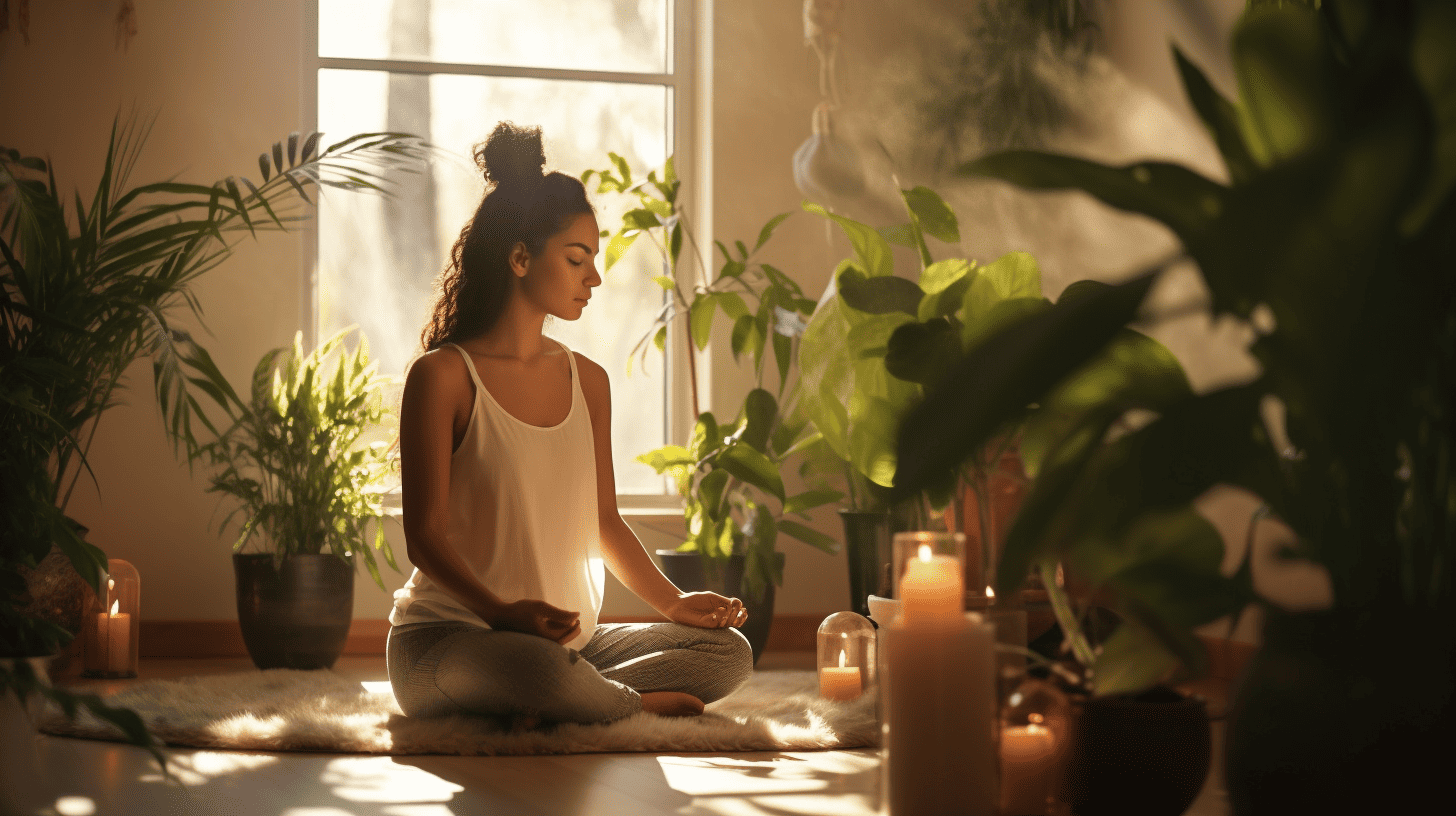Fascination About Mysticism
Fascination About Mysticism
Blog Article
What Does Mindfulness Do?
Table of ContentsThe Single Strategy To Use For MindfulnessPersonal Growth Things To Know Before You BuyThe Of MindfulnessThe Buzz on EnlightenmentMindful Consciousness - An Overview

That's the only way you'll keep appearing day after day. Research reveals that integrating a 30-second action with a "habit anchor" can make new regimens more likely to stick. The 30-second action can be anything that might trigger you to start your new day-to-day meditation routine (For instance: "I will count 15 inhales and exhale breath cycles for 30 seconds before I begin meditating").
Select a meditation posture that feels great for your body. This could be being in a chair or on a sofa with feet flat on the flooring, kneeling, legs crossed on a firm cushion or yoga mat, lying down on your back, and even standing or strolling. If you're sitting, try to keep your back directly, your hands resting on your lap or knees, your eyes looking gently into the middle range or at an area on the flooring in front of you.
Some Known Factual Statements About Mindful Consciousness
Feel free to choose whatever position feels finest for you (and, know that this position might alter depending on the day). Comfy clothing are ideal, and you can even curtain a blanket over yourself if you tend to feel cold while sitting still if that feels more pleasant.
The benefits of meditation in the early morning have less to do with meditation itself and more to do with setting the phase for the day ahead. Meditation is an umbrella term for a range of mental focus methods that can help merge the mind and body. https://www.wattpad.com/user/spiritualsaz. It involves elements of concentration, relaxation, mindfulness, and psychological neutrality

The 3-Minute Rule for Mindful Consciousness
"Standard knowledge is that the morning is a fantastic time to do it, and if you can make time in the morning, that is terrific. If not any time you can set aside for meditation is the ideal time."Meditation's are not depending on the time of day, however there are reasons that practitioners frequently advise meditation in the early morning.
Mathews points out there's a meditation saying, often attributed to Gandhi, that on the days he is truly hectic, he practices meditation for 2 hours in the early morning rather of 1.
, a licensed clinical social worker from St. Louis, Missouri, early mornings tend to have an inherent sense of peace before the hustle and bustle of the day."Early early mornings give an opportunity to have time alone, while everybody else continues to sleep," she states.
Getting The Meditation To Work
And that's something that's pretty unusual to experience, in a world that's ever more connected by technology." One of the great aspects of meditation is that you do not need to set a significant period of time aside for it, specifically when you're just beginning. Schmidt adds that mornings are also a perfect time to explore meditation in an environment where you're already unwinded and comfortable your bed."As you're just getting up and are still depending on bed, you can take the opportunity to get in touch with yourself for even just 5 minutes," she states.
Some specialists suggest repetition, skills, and consistency are more crucial than period. One study from 2018 discovered that 13 minutes a day for 8 weeks was enough for most unskilled meditators to discover favorable changes. Often a couple of minutes of mediation may be all you need to accomplish the best level of focus and clarity to satisfy a challenge head-on."There really isn't a great or bad amount of time to meditate," Mathews states.
More About Mysticism
The practice you decide on should be one that appeals to your goals and your principles. If you aren't a spiritual person, for example, spiritual-focused meditation may not be for you.
You can gradually integrate meditation into your day in a method that makes sense and doesn't seem like a chore (http://peterjackson.mee.nu/where_i_work#c2053). Rock and Mathews recommend: starting with a small time objective of 510 minutessetting aside time specifically to meditate, if possible, but remaining flexibleexploring different locations of your home or nature for a meditation spottrying different meditation practices to find a great fitlearning more about your selected meditation formatconnecting and sharing experiences with others who likewise meditateutilizing aids like meditation apps or calming music, Many importantly, Rock states to be kind and client with yourself while you discover
The advantages of meditation in the morning have to do with setting your day up for success. Morning may be an excellent time for meditation, but the "finest" time of day for meditation is whenever you're most likely to seize the opportunity.
Report this page